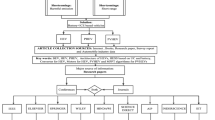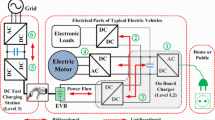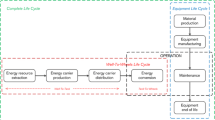Abstract
This paper presents a power management strategy to minimize the fuel consumption of a heavy-duty series hybrid electric vehicle. The vehicle model, which consists of a CNG engine, a generator, two driving motors and a battery, is developed and validated with experimental data. Dynamic programming (DP) is applied to design a control algorithm optimizing fuel consumption of the series hybrid electric vehicle. By imitating the behavior of the DP control signal, a rule-based control algorithm is proposed. The controller actuates the CNG engine, generator, and battery to minimize fuel consumption and maintain the battery state of charge within a proper region. Simulation studies and experiments are conducted for typical driving modes to investigate the performance of the proposed power management strategy. Results indicate that fuel economy can be enhanced by approximately 30% using the proposed power management strategy to the series hybrid electric vehicle over the conventional vehicle.
Similar content being viewed by others
References
U. D Choi and J. C Lee, A system design for the series hybrids in transit buses, IEEE Strategic Technology (2006) 438–442.
A. Brahma, Y. Guezennec and G. Rizzoni, Optimal energy management in series hybrid electric vehicles, Proceedings of the American Control Conference Chicago (2000) 60–64.
S. J. Yun, J. W. Choi and K. S. Yi, Development of supervisory controller for optimized fuel consumption of series hybrid electric vehicle, KSME (2011) 109–114.
G. Song and G. Yan, Study on power train parameters matching of series hybrid city bus, IEEE Vehicular Electronics and Safety (2006) 449–453.
C. Musardo and G. Rizzoni, A-ECMS: An adaptive algorithm for hybrid electric energy management, IEEE Conference on Decision and Control (2005) 1819–1823.
R. S. Chandel and S. R. Bala, Effect of welding parameters and groove angle on the soundness of root beads deposited by the SAW process, Proc. of Trends in Welding Research, Gatlinburg, Tennessee, USA (1986) 479–385.
B. K. Powell, K. E. Bailey and S. R. Cikanek, Dynamic modeling and control of hybrid electric vehicle powertrain systems, Control Systems, IEEE (1999) 17–33.
J.-S. Won, R. Langari and M. Ehsani, An energy management and charge sustaining strategy for a parallel hybrid vehicle with CVT, IEEE Transactions on Control Systems Technology, 13 (2) (2005) 313–320.
P. Pisu and G. Rizzoni, A comparative study of supervisory control strategies for hybrid electric vehicles, IEEE Transactions on Control Technology, 15 (3) (2007) 506–518.
J. Moreno, M. E. Ortuzar and J. W. Dixon, Energymanagement system for a hybrid electric vehicle, using ultra capacitors and neural networks, IEEE Transactions on Industrial Electronics, 53 (2) (2006) 29–36.
Author information
Authors and Affiliations
Corresponding author
Additional information
Recommended by Associate Editor Bongsob Song
Seungjae Yun received his B.S. and M.S. degrees in Mechanical and Aerospace Engineering from Seoul National University, Korea, in 2009 and 2011, respectively. He is currently a Ph.D. student in Mechanical and Aerospace Engineering at the Seoul National University, Korea. His research interests involve hybrid electric systems and efficient driving control.
Kangwon Lee received his B.S. and M.S. degrees in Mechanical Engineering from Yonsei University, Korea, in 1989 and 1993, respectively, and his Ph.D. from the University of Michigan, Ann Arbor, in 2004. Currently, Dr. Lee is an Associate Professor at the Korea Polytechnic University, Korea. His major research interests are vehicle control systems, driver models, and active safety systems.
Kyongsu Yi received his B.S. and M.S. degrees in Mechanical Engineering from Seoul National University, Korea, in 1985 and 1987, respectively, and his Ph.D. degree in Mechanical Engineering from the University of California, Berkeley, in 1992. Dr. Yi is a Professor at the School of Mechanical and Aerospace Engineering at Seoul National University, Korea. He currently serves as a member of the editorial boards of the KSME, IJAT, and ICROS journals. Dr. Yi’s research interests include control systems, driver assistant systems, and active safety systems of a ground vehicle.
Rights and permissions
About this article
Cite this article
Yun, S., Lee, K. & Yi, K. Development of a power management strategy to minimize the fuel consumption of a heavy-duty series hybrid electric vehicle. J Mech Sci Technol 29, 4399–4406 (2015). https://doi.org/10.1007/s12206-015-0938-8
Received:
Revised:
Accepted:
Published:
Issue Date:
DOI: https://doi.org/10.1007/s12206-015-0938-8




